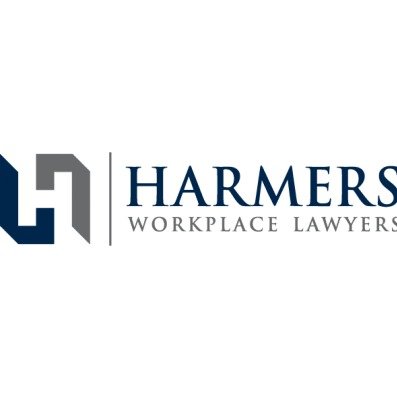Best Employment Rights Lawyers in Australia
Share your needs with us, get contacted by law firms.
Free. Takes 2 min.
Or refine your search by selecting a city:
List of the best lawyers in Australia
About Employment Rights Law in Australia
Employment Rights Law in Australia is designed to protect the interests of workers and ensure fair treatment in the workplace. It encompasses various rights and obligations, both statutory and contractual, between employers and employees. These laws cover areas such as wages, working conditions, discrimination, workplace safety, and termination rights. The Fair Work Act 2009 is a key piece of legislation that establishes the minimum standards for employment rights in Australia, applicable to most employees.
Why You May Need a Lawyer
Many situations can arise where seeking legal advice on employment rights is beneficial. Common scenarios include unfair dismissal, workplace bullying or harassment, discrimination issues, disputes regarding pay or entitlements, breaches of employment contracts, and needing guidance during negotiation of employment terms. A lawyer specializing in employment rights can provide valuable expertise to navigate complex situations, protect your rights, and ensure a fair outcome.
Local Laws Overview
Navigating employment rights in Australia involves understanding specific aspects of local laws. Key components include:
- National Employment Standards (NES): They outline 11 minimum employment entitlements, such as maximum weekly hours, flexible working arrangements, and types of leave.
- Fair Work Commission: This body handles disputes and ensures compliance with workplace laws.
- Accrual and Payment of Leave: Employees are entitled to different types of leave including annual leave, personal/carer's leave, and parental leave.
- Protection from Discrimination: Anti-discrimination laws at both federal and state levels prohibit discrimination in the workplace based on attributes such as age, gender, race, and disability.
- Workplace Health and Safety (WHS): These laws are designed to protect workers from risks to their health and safety during the course of their employment.
Frequently Asked Questions
What are my basic employment rights in Australia?
Basic employment rights in Australia ensure fair wages, safe working conditions, non-discriminatory practices, and the right to join trade unions. These rights are protected under various laws and regulations, including the NES and Fair Work Act.
How can I know if I am being fairly compensated?
Employees should receive at least the minimum wage set by the law for their role and location. Consult the Fair Work Ombudsman for information on lawful pay rates and entitlements specific to your position.
What constitutes unfair dismissal?
An unfair dismissal occurs when an employee is terminated in a harsh, unjust, or unreasonable manner. If this is suspected, one can apply for an unfair dismissal remedy through the Fair Work Commission.
How do I address workplace harassment?
Workplace harassment should be reported to your supervisor, HR department, or external bodies. Legal assistance can help in understanding your options and pursuing formal complaint procedures.
What if I face discrimination at work?
Employees facing discrimination may lodge a complaint with the Australian Human Rights Commission or seek legal advice to potentially pursue claims under relevant anti-discrimination laws.
Am I entitled to breaks and flexible work arrangements?
Yes, employees are entitled to rest breaks and meal breaks. They may also request flexible working arrangements, which employers can refuse only on reasonable business grounds.
What should my employment contract include?
An employment contract should include job title, duties, pay rate, work hours, leave entitlements, and termination conditions. It should be reviewed for compliance with legal standards.
How can I resolve a pay dispute?
Pay disputes should be addressed initially with your employer. If unresolved, contact the Fair Work Ombudsman or seek legal advice for further steps.
Can I be made redundant and what are my rights?
Redundancy should be genuine, based on the position no longer being needed. Affected employees are entitled to redundancy pay and notice, in addition to help in finding another job.
What is the process for filing a complaint with the Fair Work Commission?
Complaints are lodged on the Fair Work Commission website using online forms. Before filing, it's helpful to seek advice to ensure you're taking the appropriate steps.
Additional Resources
The following are helpful resources for understanding employment rights:
- Fair Work Ombudsman: Provides guidance on wages, entitlements, and complaint procedures.
- Australian Human Rights Commission: Handles discrimination and harassment complaints.
- Safe Work Australia: Offers guidance on WHS laws and standards.
- Legal Aid Commissions: Provide free or low-cost legal advice for employment disputes.
Next Steps
If you need legal assistance with employment rights, begin by gathering all relevant documentation, including contracts, payslips, and correspondence. Contact a lawyer specializing in employment law or a community legal center for an initial consultation to understand your position better. Engage with government bodies, like the Fair Work Ombudsman, if you contemplate pursuing claims independently. Utilizing these resources can provide clarity, ensure fair treatment, and uphold your rights in the workplace.
Lawzana helps you find the best lawyers and law firms in Australia through a curated and pre-screened list of qualified legal professionals. Our platform offers rankings and detailed profiles of attorneys and law firms, allowing you to compare based on practice areas, including Employment Rights, experience, and client feedback.
Each profile includes a description of the firm's areas of practice, client reviews, team members and partners, year of establishment, spoken languages, office locations, contact information, social media presence, and any published articles or resources. Most firms on our platform speak English and are experienced in both local and international legal matters.
Get a quote from top-rated law firms in Australia — quickly, securely, and without unnecessary hassle.
Disclaimer:
The information provided on this page is for general informational purposes only and does not constitute legal advice. While we strive to ensure the accuracy and relevance of the content, legal information may change over time, and interpretations of the law can vary. You should always consult with a qualified legal professional for advice specific to your situation.
We disclaim all liability for actions taken or not taken based on the content of this page. If you believe any information is incorrect or outdated, please contact us, and we will review and update it where appropriate.
Browse employment rights law firms by city in Australia
Refine your search by selecting a city.
















